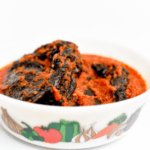Food has a language of its own, transcending borders and cultures, and connecting people on a deeper level. It has the power to evoke memories, spark emotions, and convey aspirations. For African immigrant communities in Canada and the USA, the language of food plays a significant role in preserving their cultural identity and satisfying their longing for familiar flavors from their home countries. In this article, we will explore the dreams and aspirations of these communities and address their concerns regarding accessing the food they cherish.
Challenges African immigrants in Canada and the USA face
African immigrants in Canada and the USA face unique challenges when it comes to accessing their traditional foods. These challenges may include:
Limited Availability of Ingredients
Finding specific ingredients used in African cuisines can be difficult in mainstream grocery stores. African immigrants often struggle to find essential items such as palm oil, yam, plantains, or certain spices and herbs that are integral to their traditional recipes.
Lack of Specialized Grocery Stores
The absence of specialized African grocery stores in many areas makes it challenging for African immigrants to find a wide range of authentic products. This not only limits their ability to cook traditional meals but also restricts their options for ready-to-eat African dishes.
Cultural Food Adjustment
Immigrants may experience cultural shock and adaptation when it comes to the local food culture. The different tastes, flavors, and cooking styles can be vastly different from what they are accustomed to in their home countries. This cultural adjustment can make it harder to find satisfaction and familiarity in their new culinary experiences.
Language Barriers
language of food barriers can pose difficulties in navigating the food landscape. Understanding product labels, communicating specific dietary requirements, or seeking assistance in locating desired ingredients may be challenging for those who are not fluent in the local language.
Perceived Authenticity
African immigrants may have concerns about the authenticity and quality of available African food products. They may hesitate to rely on substitutes or generic versions that do not capture the true essence of their traditional cuisines.
Addressing Challenges of Language of Food: Kabaia’s Role
Preserving Cultural Identity through Food
![]()
![]()
![]()
![]()
![]()
![]()
![]()
![]()
![]()
![]()
![]()
![]()
![]()
![]()
![]()


![]()
![]()
![]()
![]()
![]()
At Kabaia, we understand the importance of catering to the needs of African immigrant communities. Our commitment to providing authentic African food products aims to bridge the gap between their dreams and the reality of their new lives. By offering a wide range of products that encompass traditional ingredients, spices, and recipes, we enable these communities to recreate the tastes and experiences of their homelands.
Meeting the Needs of African Immigrant Communities
One of the primary concerns for African immigrants in Canada and the USA is the availability of the food they are accustomed to back in their home countries. The limited accessibility to specific ingredients and products poses a challenge to preserving their culinary traditions and satisfying their cravings.
To address this concern, Kabaia has established partnerships with local farmers and suppliers, both within and outside of Canada and the USA. This enables us to source and provide high-quality ingredients essential for African cuisines, ensuring that individuals can recreate their favorite dishes without compromise.
For instance, imagine a young Nigerian immigrant named Adaeze, who has been longing for the taste of her mother’s jollof rice, a beloved West African delicacy. At Kabaia, Adaeze can find all the necessary ingredients, including the authentic Basmati rice, rich tomato sauce, and unique spices. By offering these ingredients, we empower Adaeze to recreate her cherished family recipe and feel connected to her heritage.
Beyond just ingredients, Kabaia also collaborates with local African restaurants and hosts culinary events that celebrate African cuisines. These initiatives create spaces for the African immigrant communities to come together, share their experiences, and indulge in the language of food that unites them.
Inspiring Culinary Entrepreneurship
Food not only satisfies cravings but can also be a catalyst for entrepreneurship and economic empowerment. Many African immigrants possess exceptional culinary skills and dream of sharing their traditional dishes with the world. However, the challenges of starting a food-related business in a foreign country can be daunting.
Understanding this aspiration, Kabaia provides mentorship programs, workshops, and resources to support aspiring culinary entrepreneurs within African immigrant communities. By offering guidance on food processing, packaging, marketing, and distribution, we empower individuals to turn their dreams into reality. Through collaboration, we create opportunities for these entrepreneurs to showcase their unique flavors and build successful food enterprises.
Conclusion
Food has a powerful language that connects people, evokes emotions, and preserves cultural identity. For African immigrant communities in Canada and the USA, access to authentic ingredients and products from their home countries is vital in satisfying their aspirations and longing for familiar flavors. Kabaia strives to bridge this gap by providing a diverse range of African food products, supporting culinary entrepreneurship, and fostering a sense of community. By understanding the language of food, we empower these communities to embrace their heritage and forge a brighter future in their new homes.
Visit Kabaia’s website to explore our extensive range of African food products and join us in celebrating the language of food that unites us all.




